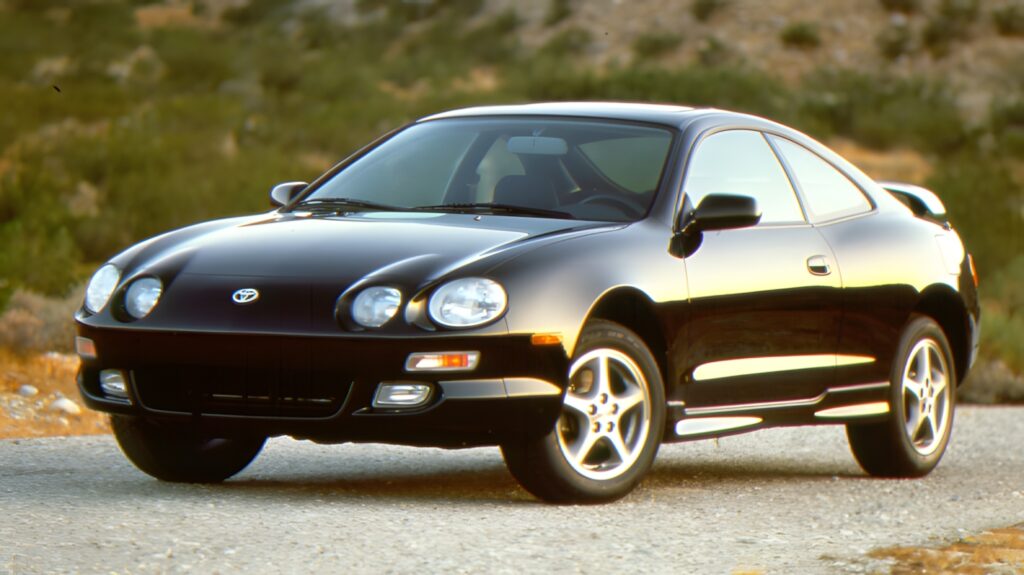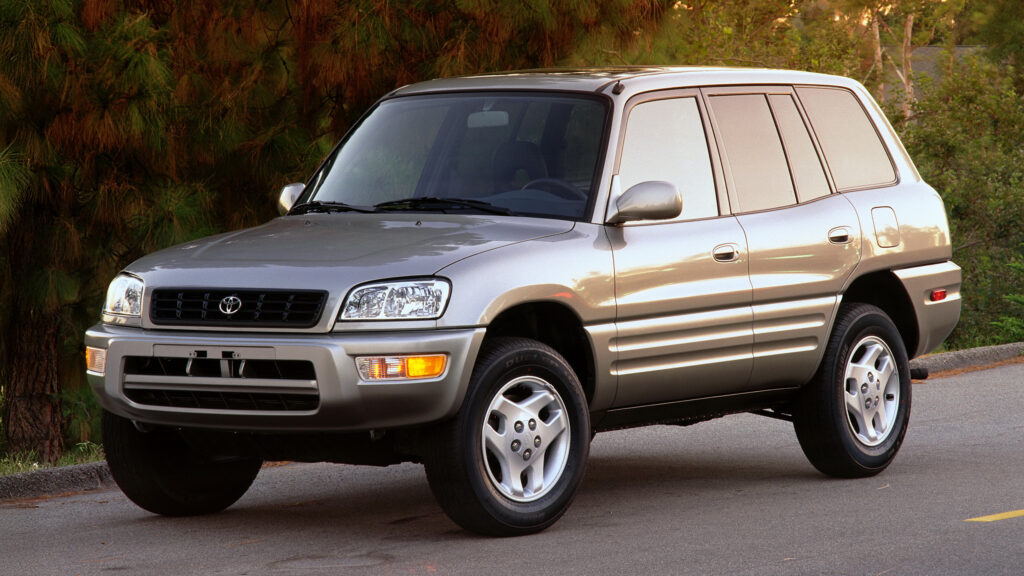- The front fascia of this sixth-gen Celica has been attached to the body of a first-gen RAV4.
- It’s unclear how long this RAV4 has had these wacky modifications, but it’s certainly eye-catching.
- Toyota recently confirmed the Celica’s return, fortunately keeping its sports car identity intact.
News of the Toyota Celica’s return has Japanese sports car fans all riled up and reinforces the brand’s renewed commitment to building driver-focused cars for enthusiasts. It’s also a relief that Toyota won’t revive one of its iconic sports car names only to use it on an SUV or crossover. But, that hasn’t stopped the owner of a RAV4 from imagining what it could look like if it were melded together with a Celica. The result is…interesting, to say the least.
This particular RAV4, which resides in Providence, Rhode Island, is a first-generation model. That means it would have rolled out of the factory in the mid- or late-1990s, around the same time the sixth-generation Celica also came to be. It’s fitting, then, that the sixth-gen Celica’s front fascia has been grafted onto the front of the SUV.
Read: Toyota Officially Confirms Celica’s Return
There’s a lot that’s memorable about the 1990s Celica, including its buzzy 2.0-liter and 2.2-liter engines. The four circular headlights also make it stand out from all other generations of Celica. It’s not the most aggressive car and – from some angles – resembles a strange-looking fish. It’s hardly a surprise that the quirky front end looks a little weird on a RAV4.


In addition to fitting the Celica’s original headlights, the owner of this RAV4 has ditched the original bumper. Place your hand over the rear of the SUV and you could be excused for thinking you were looking at a real Celica, albeit one that’s had its ride height jacked up significantly.
Details about the future of the Celica are thin on the ground, but Toyota executive vice president Yuki Nakajima confirmed work on the new model last month. It’s unclear what engine it could use, but we suspect one of Toyota’s new 1.5-liter or 2.0-liter engines that can run on different fuel types is possible.




